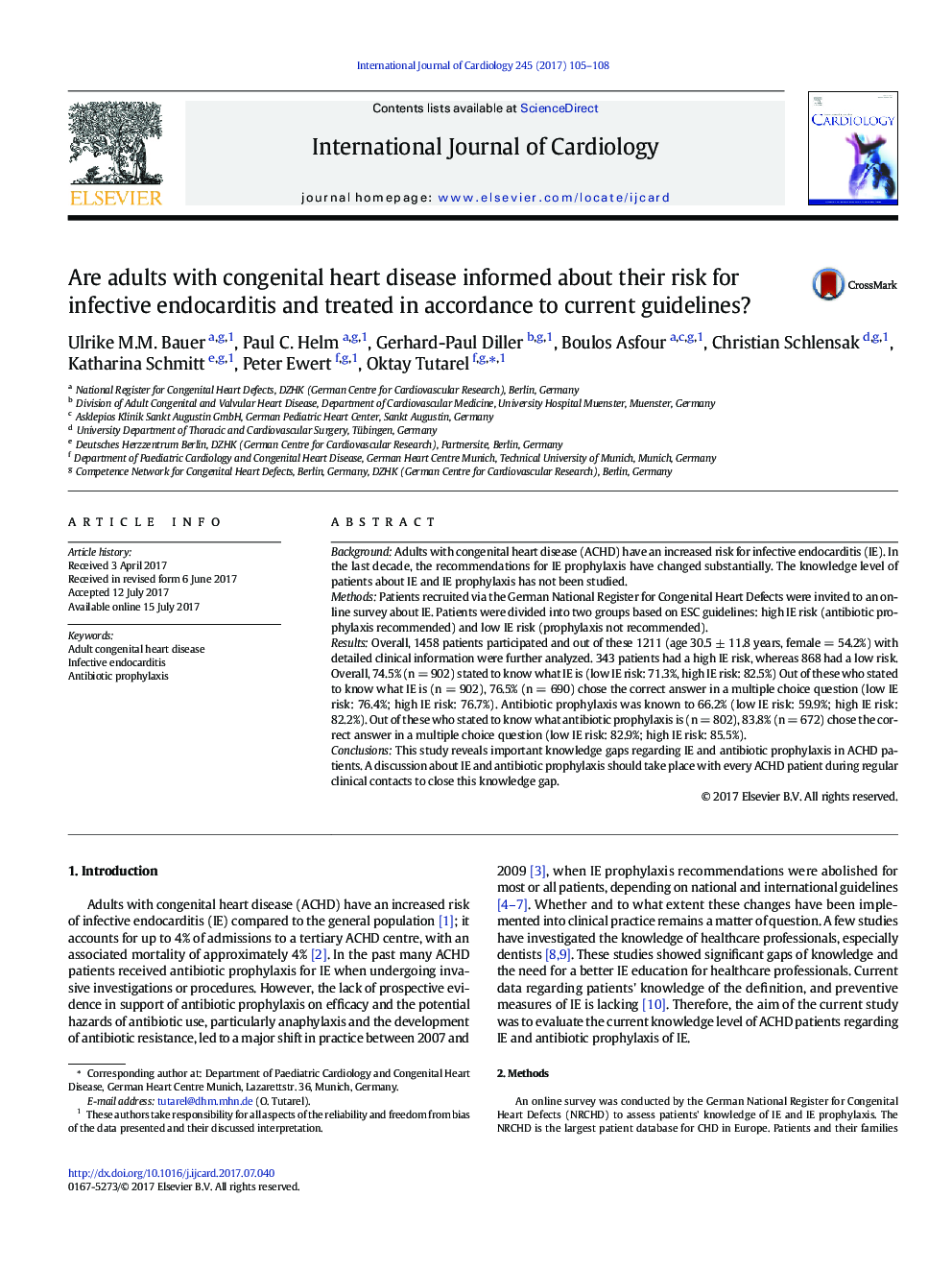| Article ID | Journal | Published Year | Pages | File Type |
|---|---|---|---|---|
| 5604583 | International Journal of Cardiology | 2017 | 4 Pages |
BackgroundAdults with congenital heart disease (ACHD) have an increased risk for infective endocarditis (IE). In the last decade, the recommendations for IE prophylaxis have changed substantially. The knowledge level of patients about IE and IE prophylaxis has not been studied.MethodsPatients recruited via the German National Register for Congenital Heart Defects were invited to an online survey about IE. Patients were divided into two groups based on ESC guidelines: high IE risk (antibiotic prophylaxis recommended) and low IE risk (prophylaxis not recommended).ResultsOverall, 1458 patients participated and out of these 1211 (age 30.5 ± 11.8 years, female = 54.2%) with detailed clinical information were further analyzed. 343 patients had a high IE risk, whereas 868 had a low risk. Overall, 74.5% (n = 902) stated to know what IE is (low IE risk: 71.3%, high IE risk: 82.5%) Out of these who stated to know what IE is (n = 902), 76.5% (n = 690) chose the correct answer in a multiple choice question (low IE risk: 76.4%; high IE risk: 76.7%). Antibiotic prophylaxis was known to 66.2% (low IE risk: 59.9%; high IE risk: 82.2%). Out of these who stated to know what antibiotic prophylaxis is (n = 802), 83.8% (n = 672) chose the correct answer in a multiple choice question (low IE risk: 82.9%; high IE risk: 85.5%).ConclusionsThis study reveals important knowledge gaps regarding IE and antibiotic prophylaxis in ACHD patients. A discussion about IE and antibiotic prophylaxis should take place with every ACHD patient during regular clinical contacts to close this knowledge gap.
